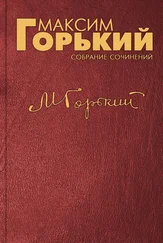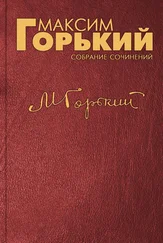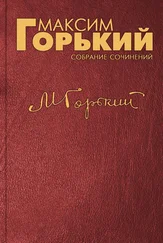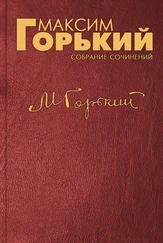Максим Горький - Through Russia
Здесь есть возможность читать онлайн «Максим Горький - Through Russia» — ознакомительный отрывок электронной книги совершенно бесплатно, а после прочтения отрывка купить полную версию. В некоторых случаях можно слушать аудио, скачать через торрент в формате fb2 и присутствует краткое содержание. Жанр: Русская классическая проза, Классическая проза, на английском языке. Описание произведения, (предисловие) а так же отзывы посетителей доступны на портале библиотеки ЛибКат.
- Название:Through Russia
- Автор:
- Жанр:
- Год:неизвестен
- ISBN:нет данных
- Рейтинг книги:3 / 5. Голосов: 1
-
Избранное:Добавить в избранное
- Отзывы:
-
Ваша оценка:
- 60
- 1
- 2
- 3
- 4
- 5
Through Russia: краткое содержание, описание и аннотация
Предлагаем к чтению аннотацию, описание, краткое содержание или предисловие (зависит от того, что написал сам автор книги «Through Russia»). Если вы не нашли необходимую информацию о книге — напишите в комментариях, мы постараемся отыскать её.
Through Russia — читать онлайн ознакомительный отрывок
Ниже представлен текст книги, разбитый по страницам. Система сохранения места последней прочитанной страницы, позволяет с удобством читать онлайн бесплатно книгу «Through Russia», без необходимости каждый раз заново искать на чём Вы остановились. Поставьте закладку, и сможете в любой момент перейти на страницу, на которой закончили чтение.
Интервал:
Закладка:
"Can, for that matter, a fish speak?" was Ossip's good-humoured retort.
All of which inspired Mokei Budirin, a grey-headed muzhik of a cast of countenance canine in the prominence of his jaws and the recession of his forehead, and taciturn withal, though not otherwise remarkable, to give slow, nasal utterance to his favourite formula.
"That is true enough," he said.
For never could anything be spoken of that was grim or marvellous or lewd or malicious, but Budirin at once re-echoed softly, but in a tone of unshakable conviction: "That is true enough."
Thereafter he would tap me on the breast with his hard and ponderous fist.
Presently work again underwent an interruption through the fact that Yakov Boev, a man who possessed both a stammer and a squint, became similarly filled with a desire to tell us something about a fish. Yet from the moment that he began his narrative everyone declined to believe it, and laughed at his broken verbiage as, frequently invoking the Deity, and cursing, and brandishing his awl, and viciously swallowing spittle, he shouted amid general ridicule:
"Once-once upon a time there lived a man. Yes, other folk before YOU have believed my tale. Indeed, it is no more than the truth that I'm going to tell you. Very well! Cackle away, and be damned!"
Here everyone without exception dropped his work to shout with merriment and clap his hands: with the result that, doffing his cap, and thereby disclosing a silvered, symmetrically shaped head with one bald spot amid its one dark portion, Ossip was forced to shout severely:
"Hi, you Budirin! You've had your say, and given us some fun, and there must be no more of it."
"But I had only just begun what I want to say," the old soldier grumbled, spitting upon the palms of his hands.
Next, Ossip turned to myself.
"Inspector," he began…
It is my opinion that in thus hindering the men from work through his tale-telling, Ossip had some definite end in view. I could not say precisely what that end was, but it must have been the object either of cloaking his own laziness or of giving the men a rest. On the other hand, whenever the contractor was present he, Ossip, bore himself with humble obsequiousness, and continued to assume a guise of simplicity which none the less did not prevent him, on the advent of each Saturday, from inducing his employer to bestow a pourboire upon the artel.
And though this same Ossip was an artelui, and a director of the artel, his senior co-members bore him no affection, but, rather, looked upon him as a wag or trifler, and treated him as of no importance. And, similarly, the younger members of the artel liked well enough to listen to his tales, but declined to take him seriously, and, in some cases, regarded him with ill-concealed, or openly expressed, distrust.
Once the Morduine, a man of education with whom, on occasions, I held discussions on intimate subjects, replied to a question of mine on the subject of Ossip:
"I scarcely know. Goodness alone knows! No, I do not know anything about him."
To which, after a pause, he added:
"Once a fellow named Mikhailo, a clever fellow who is now dead, insulted Ossip by saying to him: 'Do you call yourself a man? Why, regarded as a workman, you're as lifeless as a doornail, while, seeing that you weren't born to be a master, you'll all your life continue chattering in corners, like a plummet swinging at the end of a string!' Yes, and that was true enough."
Lastly, after another pause the Morduine concluded:
"No matter. He is not such a bad sort."
My own position among these men was a position of some awkwardness, for, a young fellow of only fifteen, I had been appointed by the contractor, a distant relative of mine, to the task of superintending the expenditure of material. That is to say, I had to see to it that the carpenters did not make away with nails, or dispose of planks in return for drink. Yet all the time my presence was practically useless, seeing that the men stole nails as though I were not even in existence and strove to show me that among them I was a person too many, a sheer incubus, and seized every opportunity of giving me covert jogs with a beam, and similarly affronting me.
This, of course, made my relations with them highly difficult, embarrassing, and irksome; and though moments occurred when I longed to say something that might ingratiate me, and endeavoured to effect an advance in that direction, the words always failed me at the necessary juncture, and I found myself lying crushed as before under a burdensome sense of the superfluity of my existence.
Again, if ever I tried to make an entry as to some material which had been used, Ossip would approach me, and, for instance, say:
"Is it jotted down, eh? Then let me look at it."
And, eyeing the notebook with a frown, he would add vaguely:
"What a nice hand you write!" (He himself could write only in printing fashion, in the large scriptory characters of the Ecclesiastical Rubric, not in those of the ordinary kind.)
"For example, that scoop there – what does IT say?"
"It is the word 'Good.'"
"'Good'? But what a slip-knot of a thing! And what are those words THERE, on THAT line?"
"They say, 'Planks, 1 vershok by 9 arshini, 5.'"
"No, six was the number used."
"No, five."
"Five? Why, the soldier broke one, didn't he?"
"Yes, but never mind – at least it wasn't a plank that was wanted."
"Oh! Well, I may tell you that he took the two pieces to the tavern to get drink with."
Then, glancing into my face with his cornflower-blue eyes and quiet, quizzical smile, he would say without the least confusion as he twisted the ringlets of his beard:
"Put down '6.' And see here, young cockerel. The weather has turned wet and cold, and the work is hard, and sometimes folk need to have their spirits cheered and raised with a drop of liquor. So don't you be too hard upon us, for God won't think the more of you for being strict."
And as he thus talked to me in his slow and kindly, but semi-affected, fashion – bespattering me, as it were, with wordy sawdust – I would suddenly grow blind of an eye and silently show him the corrected figure.
"That's it – that's right. And how fine the figure looks now, as it squats there like a merchant's buxom, comely dame!"
Then he would be seen triumphantly telling his mates of his success; then, I would find myself feeling acutely conscious of the fact that everyone was despising me for my complacence Yes, grown sick beyond endurance with a yearning for some thing which it could not descry, my fifteen-year-old heart would dissolve in a flood of mortified tears, and there would pass through my brain the despondent, aching thought:
"Oh, what a sad, uncomfortable world is this! How should Ossip have known so well that I should not re-correct the 6 into a 5, or that I should not tell the contractor that the men have bartered a plank for liquor?"
Again, there befell an occasion when the men stole two pounds' weight of five vershok mandrels and bolts.
"Look here," I said to Ossip warningly. "I am going to report this."
"All right," he agreed with a twitch of his grey eyebrows. "Though what such a trifle can matter I fail to see. Yes, go and report every mother's son of them."
And to the men themselves he shouted:
"Hi, boobies! Each of you now stands docked for some mandrels and bolts."
"Why?" was the old soldier's grim inquiry.
"Because you DO so stand," carelessly retorted the other.
With snarls thereafter, the men eyed me covertly, until I began to feel that very likely I should not do as I had threatened, and even that so to do might not be expedient.
"But look here," said I to Ossip. "I am going to give the contractor notice, and let all of you go to the devil. For if I were to remain with you much longer I too should become a thief."
Читать дальшеИнтервал:
Закладка:
Похожие книги на «Through Russia»
Представляем Вашему вниманию похожие книги на «Through Russia» списком для выбора. Мы отобрали схожую по названию и смыслу литературу в надежде предоставить читателям больше вариантов отыскать новые, интересные, ещё непрочитанные произведения.
Обсуждение, отзывы о книге «Through Russia» и просто собственные мнения читателей. Оставьте ваши комментарии, напишите, что Вы думаете о произведении, его смысле или главных героях. Укажите что конкретно понравилось, а что нет, и почему Вы так считаете.







